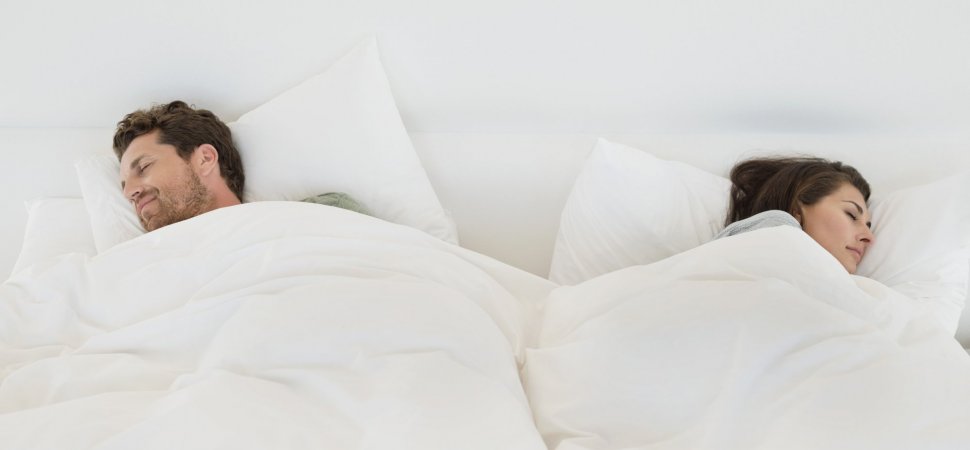
Sleep makes us feel better. We feel more alert, more energetic, happier, and better able to function following a good night of sleep.
But the fact that sleep makes us feel better and that going without sleep makes us feel worse only begins to explain why sleep is so important.
Too often, we treat sleep as optional, something you don’t really need if you can make yourself tough enough to go without it.
Some people even brag about how little sleep they need at night, as if it’s a test of strength.
But sleep plays a vital role in all kinds of physical and mental processes–everything from memory to weight control.
Here are some important facts about sleep that you need to know–especially if you’ve been depriving yourself:
1. Remember more: We retain information and perform better on memory tasks after sleeping.
2. Restore. rejuvenate and repair. It is during long periods of sleep that our bodies restore and rejuvenate, growing muscle, repairing tissue and synthesizing hormones.
3. Catnapping and naps. It’s possible to go from spacing out into a brief cat nap even with your eyes open.
4. There is no catching up. That thing where you try to catch up by sleeping late on the weekends doesn’t work. Sleep deprivation can be overcome only with several consecutive nights of sufficient sleep.
5. The dilemma of snoring. If you snore, you may suffer from sleep apnea, a serious breathing disorder. Talk to your doctor about a sleep study.
6. Sleep requirement. We require more sleep during critical periods of growth and learning. Both teens and small children need about 10 hours a night.
7. Deprived sleep. Feeling tired can quickly seem normal. People deprived of sleep in a study noticed they weren’t at their best . After a few days, though, this awareness wore off (although the effects remained)
8. Shut down ALL lights. The light from electronic screens interferes with sleep cycles by affecting the sleep-inducing hormone melatonin. If you have trouble sleeping, it’s recommended that you shut off all screens at least an hour ahead of your bedtime.
9. The loss of an hour. The one-hour shift in sleep patterns associated with daylight saving time is associated with an increase in accidents.
10. Missed sleep. Most parents miss out on 400 to 750 hours of sleep in a baby’s first year.
11. Dream on. Dreams were once thought to occur only during REM sleep, but they sometimes also occur in non-REM phases.
12. Maturity and brain function. Premature babies have 75 percent REM sleep, 10 percent more than full-term babies. It’s thought that REM sleep may help their maturing brains.
13. Drunk and sleep. Going 17 hours without sleep impairs you to the same level as a blood alcohol-level of .05 percent, not far removed from the legal driving limit of 0.08.
14. Accidents and causes. Australian motorists’ association NRMA estimates that fatigue is involved in one in six fatal traffic accidents.
15. Our inner alarm. The “natural alarm clock” that allow some people to wake themselves up at will is caused by a burst of the stress hormone adrenocorticotropin. It’s thought to be an unconscious anticipation of the stress of waking up.
16. Obesity and fat. Failing to get enough sleep can interfere with eating habits and insulin production, making it a contributing factor in obesity and high blood glucose.
17. Disruption of sleep. It takes only a small amount of light–even the light from a digital alarm clock–to disrupt the sleep cycle.
18. Heat and sleep. Body temperature and the brain’s sleep-wake cycle are closely linked, which is why it’s hard to fall asleep in a hot room.
19. Added punch. Sleep deprivation makes the effect of alcohol more powerful .
20. Treat nightmares. Techniques of lucid dreaming–in which the sleeper is aware that they’re dreaming and can even control the action of the dream–have been used to treat nightmares.
N A T I O N A L B E S T S E L L E R
THE LEADERSHIP GAP
What Gets Between You and Your Greatness
After decades of coaching powerful executives around the world, Lolly Daskal has observed that leaders rise to their positions relying on a specific set of values and traits. But in time, every executive reaches a point when their performance suffers and failure persists. Very few understand why or how to prevent it.
Additional Reading you might enjoy:
- 12 Successful Leadership Principles That Never Grow Old
- A Leadership Manifesto: A Guide To Greatness
- How to Succeed as A New Leader
- 12 of The Most Common Lies Leaders Tell Themselves
- 4 Proven Reasons Why Intuitive Leaders Make Great Leaders
- The One Quality Every Leader Needs To Succeed
- The Deception Trap of Leadership
Photo Credit: Getty Images
Of Lolly’s many awards and accolades, Lolly was designated a Top-50 Leadership and Management Expert by Inc. magazine. Huffington Post honored Lolly with the title of The Most Inspiring Woman in the World. Her writing has appeared in HBR, Inc.com, Fast Company (Ask The Expert), Huffington Post, and Psychology Today, and others. Her newest book, The Leadership Gap: What Gets Between You and Your Greatness has become a national bestseller.
prarthana das
01. Aug, 2019
nice Article . it’s really effective.